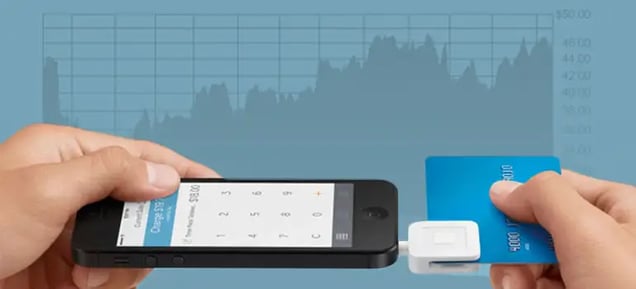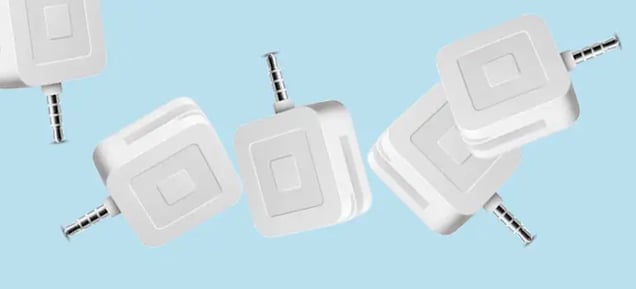Silicon Valley darling Jack Dorsey is set to take Square public next week. His startup offers businesses an easy way to accept credit cards, and has been labeled one of the “unicorns to watch” in the tech world.

Unicorns – for those of you who don’t know – are companies with a valuation of over $1 billion. Square, Inc., cofounded by Twitter CEO Jack Dorsey, was valued at $6 billion by private investors, and just set its IPO date: the week of November 16.
Square is a unicorn… and its investors plan to gut it and drink its green-tinted blood.
What you need to know
IPO, or Initial Public Offering, is the first time a stock becomes available for sale to the public.
This is why Square is going public:
Building Up Capital
If you are a small company and you need some cash to put into your company, selling stock is a great way to do this. According to USA TODAY, Square could raise $324 million. This year, Square has $131.5 million in losses, and going public could help big-time.
The Cash Out Promise
Venture capitalists and early shareholders can use an IPO as an opportunity to leave the company with a chunk of change. With Square, Khosla Ventures could earn $657 million from their initial investment of $10 million in 2009, according to CNBC (although they’ll need to wait six months to sell their stock).
Media Interest
An IPO means that people will talk about the decision to become a publicly-traded company. This will give Square a bigger boost in brand recognition. And brand recognition equals bigger profits.
The term IPO can be misleading.
There are a limited number of shares for sale, so the everyday Jane Doe can’t just buy a share solo. She’d have to work with one of the investment banks that underwrites for the IPO in order to buy early (Goldman Sachs is one of the companies underwriting Square’s IPO).

The numbers for Square
Square announced its IPO will take place the week of November 16, at $11-13 per share under the ticker NYSE:SQ (CNBC).
According to their SEC filing in October, Square lost $131.5 million, with a revenue of $892 million. Overall, their losses have been increasing, and their revenue as well.
That’s a lot of loss considering they are going public in two weeks.
Like any company, they have a lot of plans to make their company profitable.
Square, Inc., has been valued at $6 billion by private investors.
If the public reacts as predicted (which almost never happens), they’ll be worth anywhere from $3.9-4.2 billion, significantly less than the private investors’ views.
On the other hand, many people will buy into Square, and become shareholders. With Jack Dorsey in charge, they’ll be banking on him, not just the company.
Warning
It’s easy to be wary of the Square IPO when looking at their revenue and net losses. Considering Wall Street cares mainly about the bottom line, Square’s losses could mean it doesn’t meet its valuation.
Notice how this article – and every one for that matter – speaks only in “ifs” and “coulds” and “probablys”.
In truth, no one really knows what will happen to a stock. Ask any economics professor – or look at any investment site – and this will stare at you on every screen: past performance does not predict future performance.
And yet, almost every article you read will talk about the IPO market, past performances, and worrisome trends.

“Last year, IPOs delivered an average 20% price gain through the end of the year, according to figures from Dealogic. After Monday’s session, the average gain for a 2015 IPO is just 2%,” reported The Wall Street Journal.
In many ways, trying to predict how much an IPO will go for is akin to predicting sleepers in fantasy football. A few facts, a lot of guesswork, and finally: “place your bets!”
IPOs are very risky, and a lot can happen even in one day of trading.
Matthew McConaughey’s character in Wolf of Wall Street is right:
“Nobody knows if a stock is going up, down, or fucking sideways.”
Even a “blue-chip stock” like Facebook was historically bad, losing $50 billion within three months of its IPO date, according to Yahoo! Finance.
“A big name like Square going public at a down round paves the way to wonder what Silicon Valley unicorns will do now,” Kaylan Tildsley, a partner at Triton Research, told The New York Times.
Seems to me that whatever happens during the Square IPO will have a knock-on effect with other companies. If it does well, more will go public; if it tanks, other IPOs won’t want to follow it.
Square’s decision to go public should not – in principle – influence when other companies go public. That should ideally be based on capital need or public opinion of your own company, not how much liquid cash you can get from selling.
Match Group, the owner of Match.com and Tinder, filed for its IPO on Monday. They’re seeking a $3.1 billion valuation.
Square’s move has potentially given them the courage to venture into the stock market. The truth is: if the public believes in a product and buys into it, then a stock will go up. If they don’t, then it won’t.
IPOs can make some people very rich very quickly, and the culture of Silicon Valley is to get rich quick.
And the premise of Square is good, letting all small businesses accept credit cards.
But is this IPO aiming to deliver a return for investors before their shares lose value, or to keep Square atop the market as the leader in mobile payment processing?
Only time will tell. And by time, we mean the next four weeks.